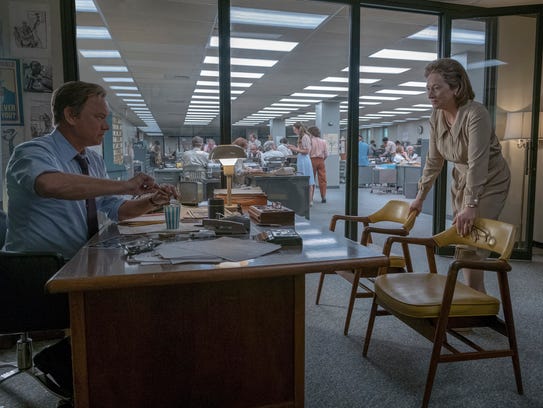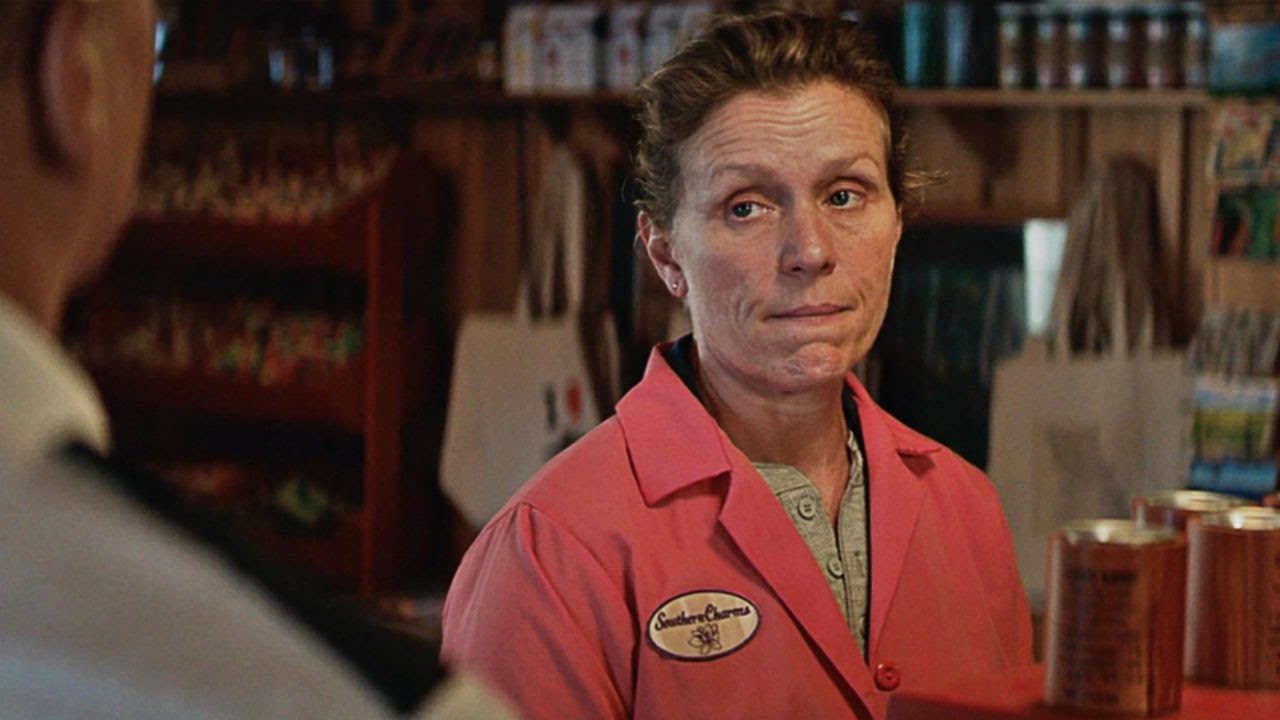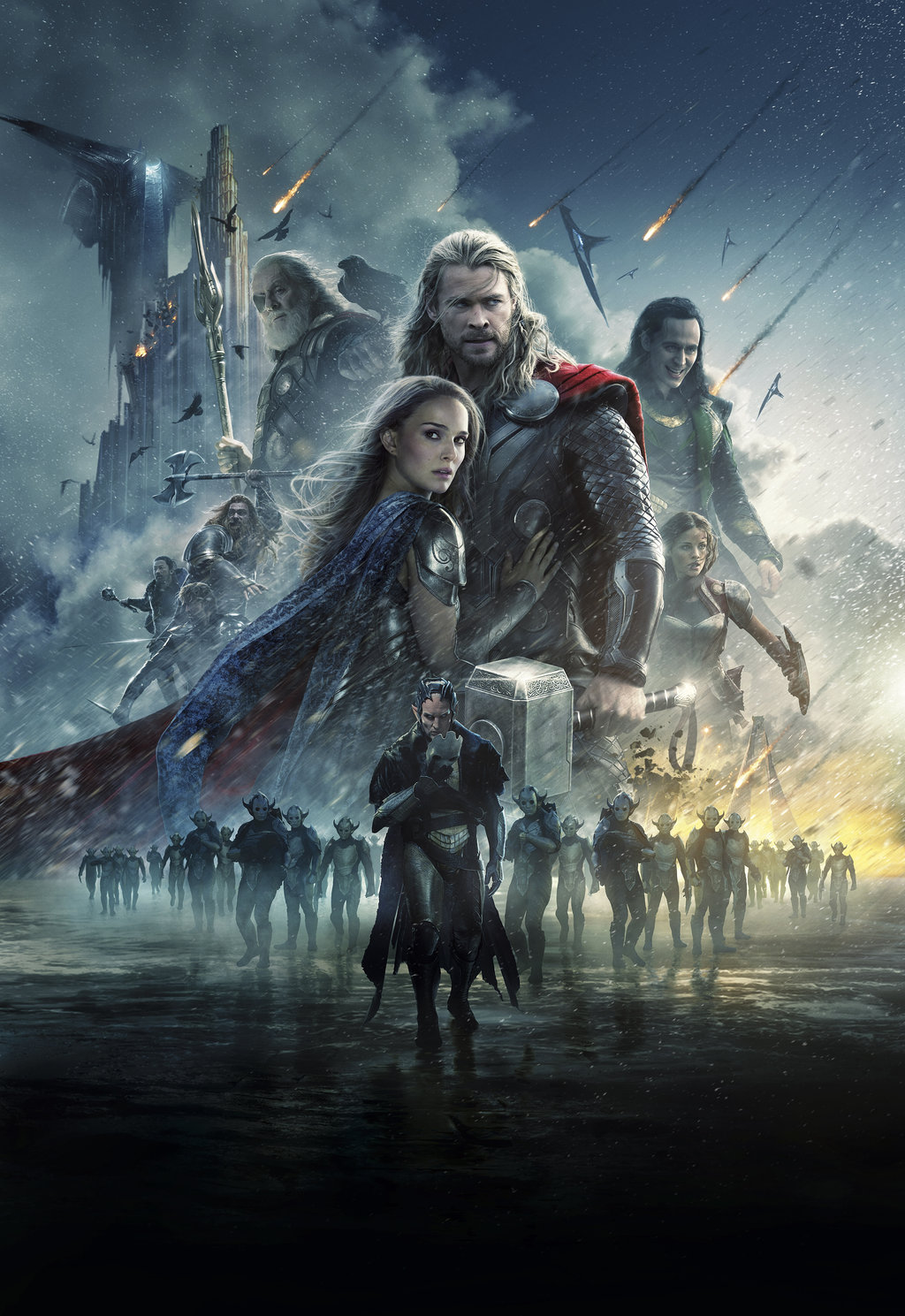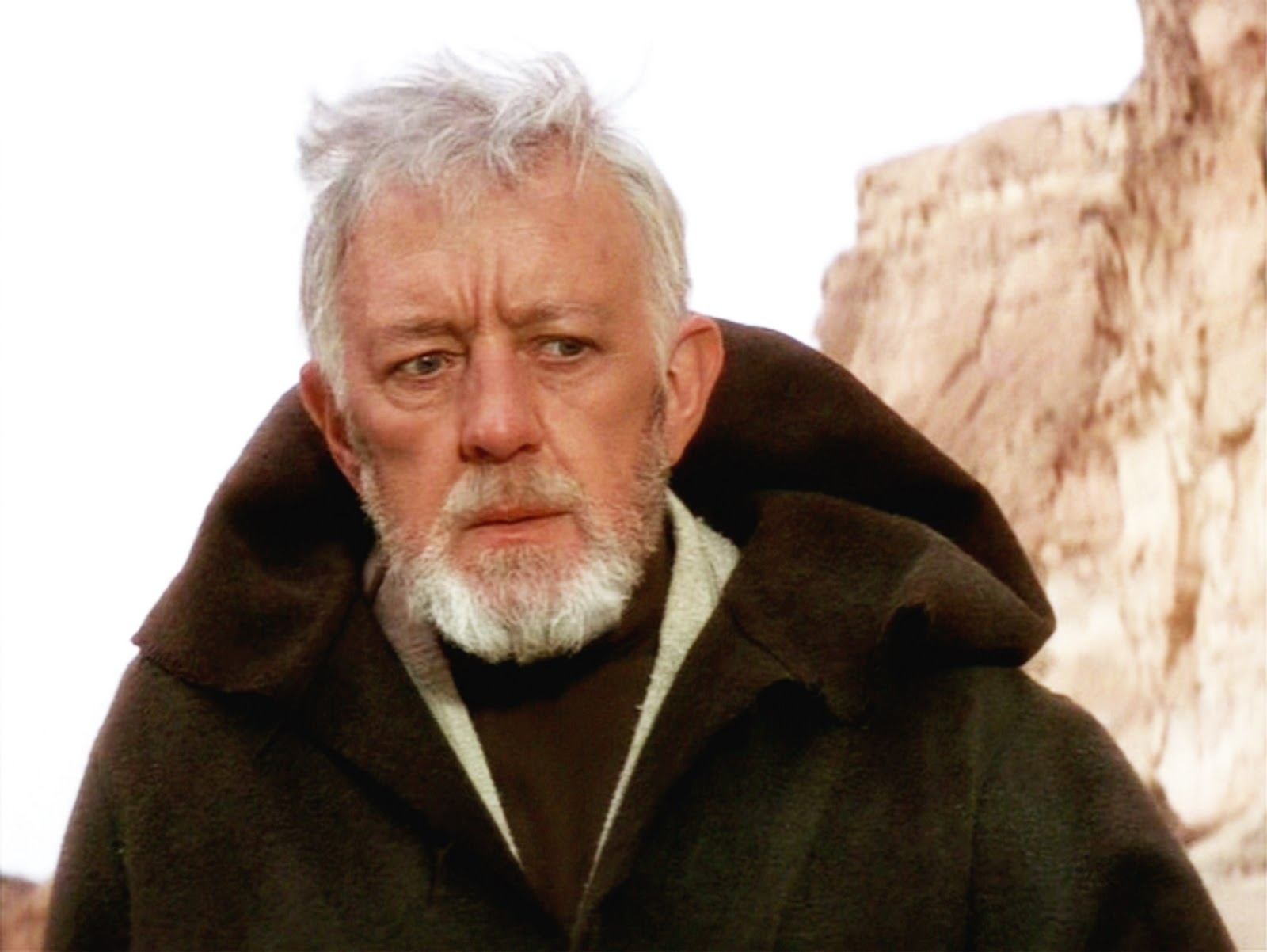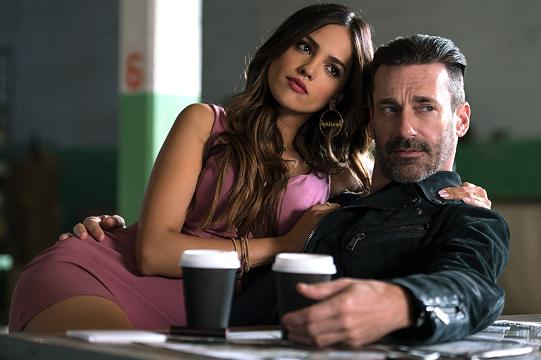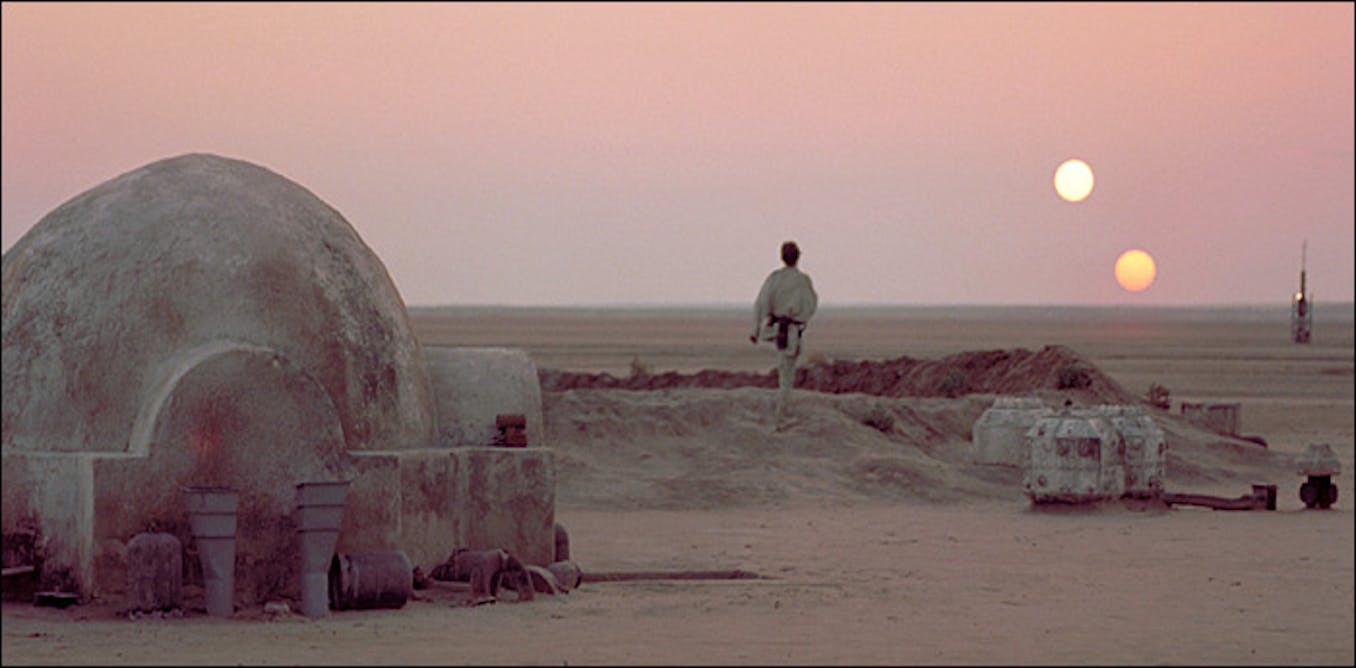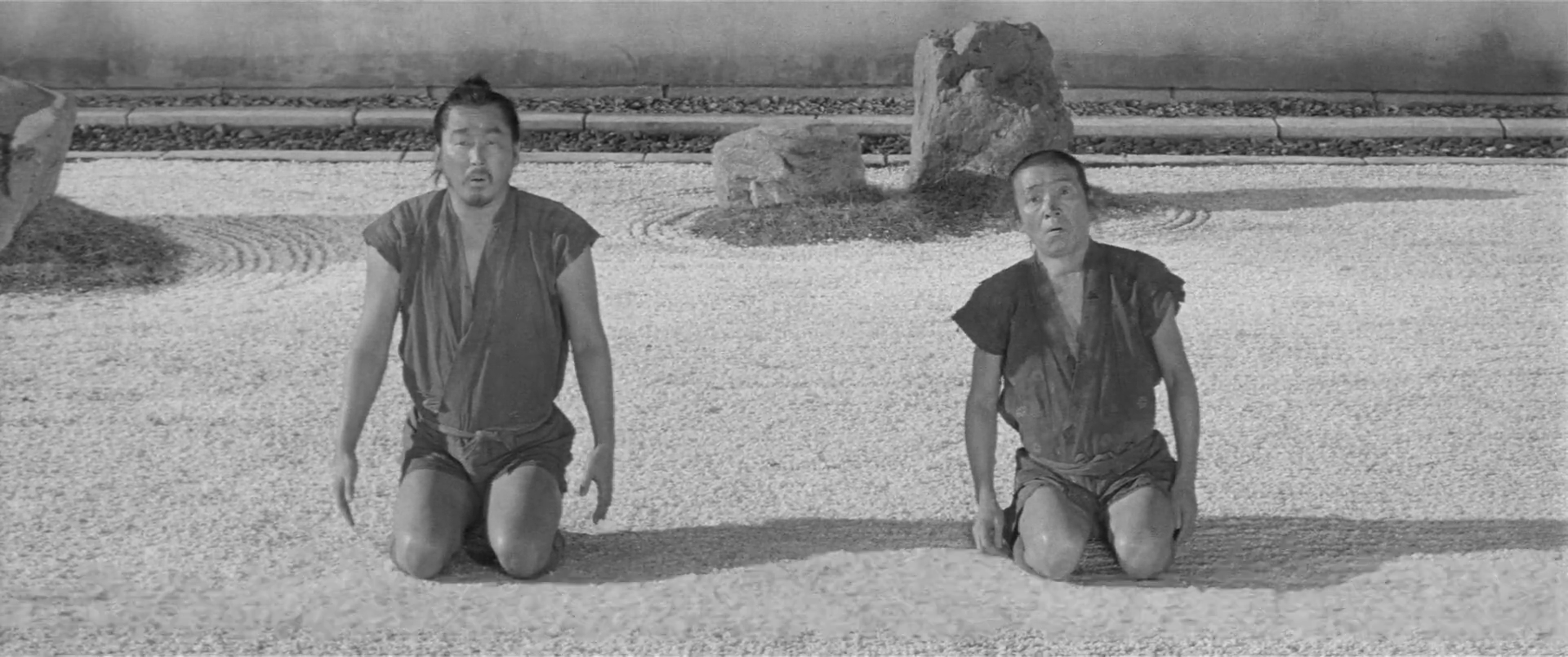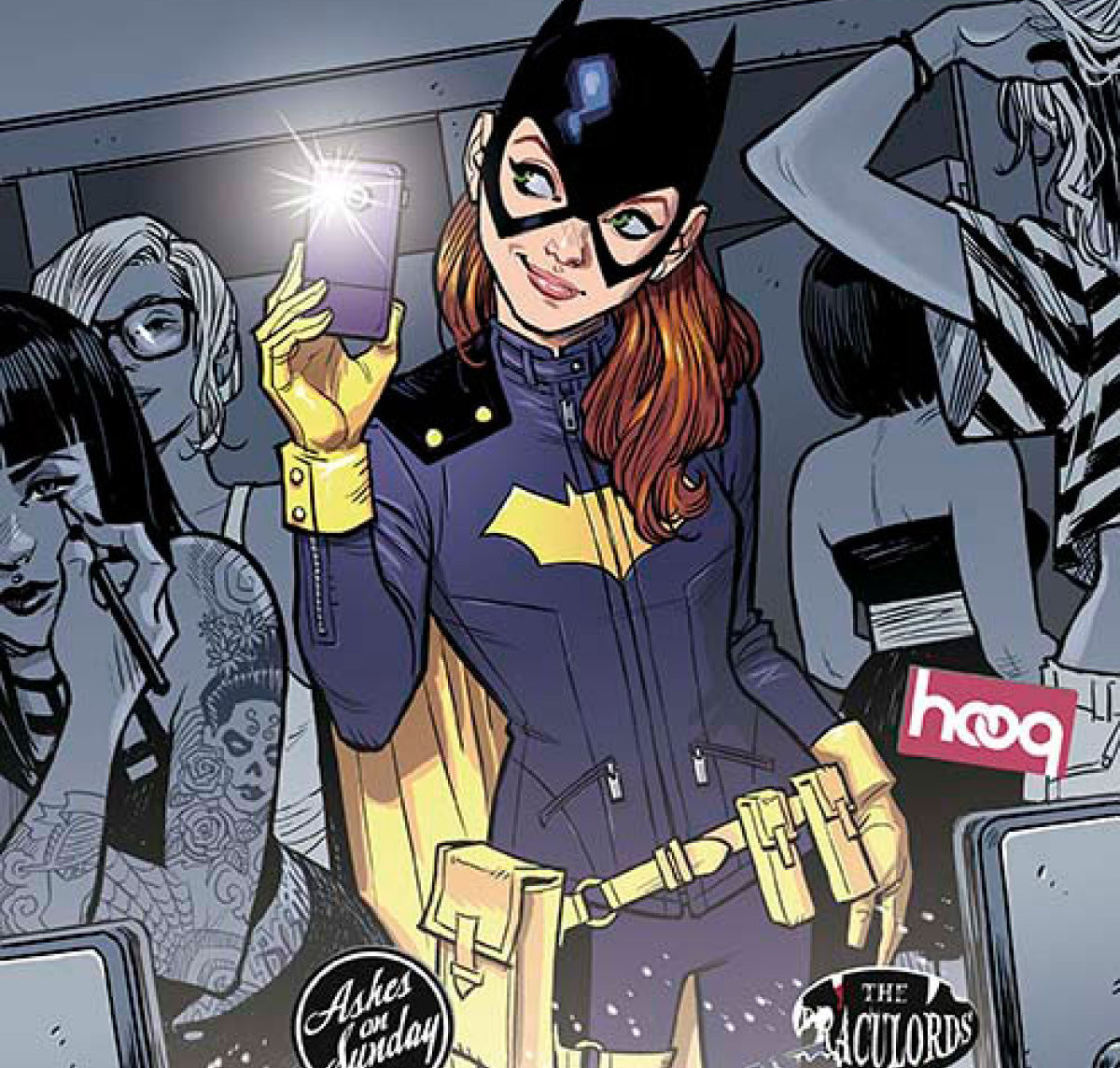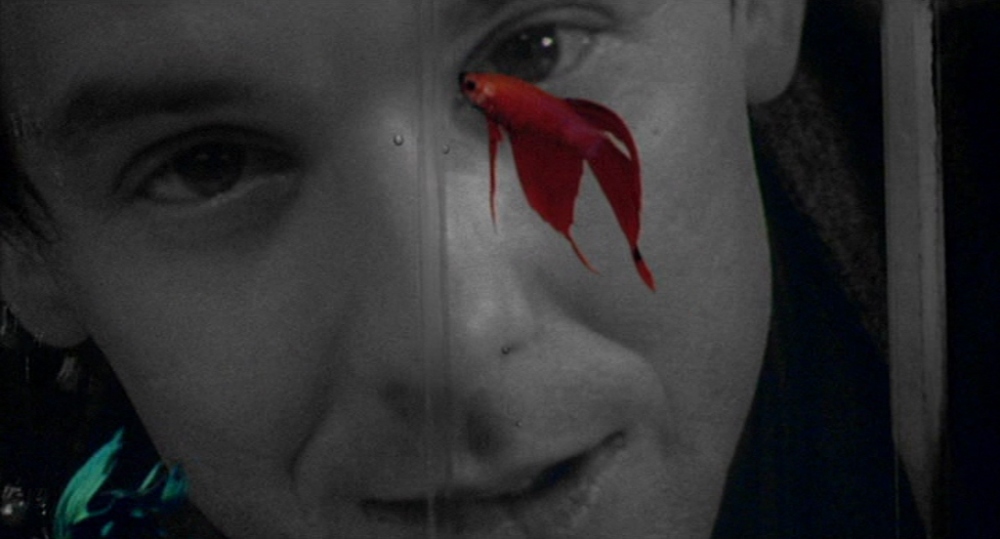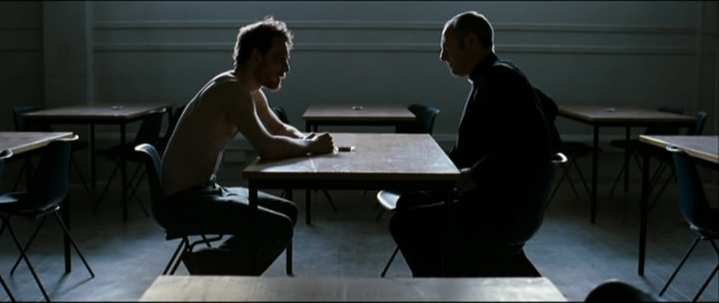While it's difficult not to feel somewhat cynical about awards season, particularly in the final weeks before the Oscars, I can't help but still be invested in the guessing game that is the Oscars. And after Moonlight winning Best Picture this year and young members being inducted in to the Academy, could we be looking at a more diverse and exciting line-up? We'll have to see. I want to look at several of the categories and examine the contenders.
Best Picture
Jordan Peele's Get Out is one of the year's best reviewed years and would likely been seen as an egregious snub is left out of the Best Picture race. It says more about race in America than other prestige films while operating as an entertaining horror thriller. While horror films have been nominated before, a horror-comedy may be a tougher sale.
Martin McDonagh's The Three Billboards Outside Ebbing, Missouri (unwieldy title aside) is also capturing the zeitgeist- it concerns a woman name Mildred Hayes' (Frances McDormand) whose daughter's murder has yet to be investigated by the police. The anger at injustice and the inaction of authority figures can't help but be relevant. If it and McDormand (who's the Best Actress frontrunner) win, it'll be the first we've had a Best Picture/Actress win since Million Dollar Baby in 2005.
Christopher Nolan's Dunkirk was one of the summer's biggest non-franchise hits, proving Nolan's drawing power as a director. It's been called his masterpiece and could be this year's Gravity or Mad Max: Fury Road, a film that sweeps the technical awards. It could even snag Nolan's first Best Director Oscar. Though I wonder if it'll have the same impact on smaller screens when watched on screeners. Some may also feel the film is too "cold" and doesn't have enough character or story.
If that's the case, the WWII movie to support would be Joe Wright's The Darkest Hour, which chronicles newly elected Prime Minister Winston Churchill who has to decide what action to take regarding Adolf Hitler. I've heard it's a good companion piece to Nolan's film. And a story about standing your ground against fascism will speak to younger voters as much as older ones.
Steven Spielberg's The Post is another period piece that could be a contender. The film concerns the Washington Post's publication of the Pentagon Papers during the Vietnam War. Said papers revealed a cover-up by the United States regarding the War. The film was just awarded Best Film of the year by the National Board of Review and Ton Hanks and Meryl Streep took lead acting honours. You can't count Spielberg when's he in prestige drama mode, especially with Hanks and Streep leading the cast. This could be another Bridge of Spies or even Lincoln. And in a time when Journalists reporting the truth are called liars, the subject matter is timely.
Call Me By Your Name is already being heralded as a masterpiece, even though it's stirred controversy for its a depiction of a relationship between a teenage boy and an older man. It could ultimately not make the cut.
While Greta Gerwig's coming-of-age dramedy Lady Bird is a small-scale film, it's stellar reviews will be hard to ignore. It may be this year's Brooklyn (which also starred Lady Bird's Saorise Ronan.) The Florida Project is another small-scale film that will benefit from critics' reviews. And both were in the NBR top ten.
Netflix could be getting their first Best Picture nomination for Dee Rees' Mudbound. It's gotten strong reviews and deals with issues of racism and life after war, subjects right up the Academy's alley.
Moving on from small-scale indie to a Hollywood blockbuster, could Wonder Woman be the first superhero film nominated for Best Picture? I have my doubts- it's generic climax could lead it to being seen as another superhero film. However, Warner Bros. is be pushing for it; and would be meaningful for the first superhero film to be Best Picture nominee to be led and directed by women.
Best Director
Christopher Nolan has the aura of "overdue" around him (he appeared to be a sure-thing for Inception). While he has been criticised for being emotionally cold I think he could win Best Director even if Dunkirk doesn't win Best Picture. Best Picture/Director have been split recently, with Director going to the big technical film- i.e. Gravity, The Revenant and La La Land). Guillermo Del Toro can also be considered overdue since he didn't get in for Pan's Labyrinth. The Shape of Water is already a critically beloved film- and after fellow Mexican filmmakers Alfonso Cuaron and Alejandro Inarritu winning, it feels like his time.
Martin McDonagh, like Kenneth Lonergan for Manchester by the Sea, is a playwright who'll likely receive his first Best Director nomination for Three Billboards. He's already an Oscar winner for his 2006 short film, Six Shooter. He was also nominated in Best Original Screenplay for 2008's In Bruges.
Greta Gerwig would only be the fifth woman to be nominated for Best Director if she gets in for Lady Bird. And Dee Rees' would be the first African American female director nominee if Mudbound gains momentum.
Spielberg can't be counted out for The Post but if feels like the Academy will want to nominate new blood. Joe Wright missed for Atonement a decade ago but returning to WWII with The Darkest Hour could garner him his first nomination.
Call Me By Your Name is one of the year's most acclaimed films and Luca Guadagnino could be the Michael Hanake-esque nominee
Jordan Peele made of the most assured directorial debuts in recent memory with Get Out, balancing, horror, comedy, satire and drama with ease. He'd be the fifth black director to receive a Best Director nomination.
.
Best Actress
I mentioned earlier that Frances McDormand is the front-runner for Three Billboards. She's one before (for Fargo) but the argument could definitely be made she's overdue for a second, considering she's been a consistently great actress. I could see Margot Robbie being a genuine threat to McDormand for her portrayal of disgraced figure skater Tonya Harding in I, Tonya. Actresses de-glamming themselves for a role (i.e. Halle Berry, Nicole Kidman, Charlize Theron) have won before and like Kidman and Theron, Robbie is playing a real life person. Saorise Ronan was the front-runner for Brooklyn a couple of years ago before Brie Larson stole her momentum. Her performance in Lady Bird will likely get her a third nomination (her first was for Best Supporting Actress for Atonement).
Some consider Meryl Streep over-nominated (especially after her nomination for Florence Foster Jenkins) but you can never count her out, especially starring alongside Tom Hanks and being directed by Steven Spielberg in The Post. If her performance is genuinely one of her best then she's probably in.
Sally Hawkins plays a mute woman in The Shape of Water and giving a silent performance led Jane Wyman and Holly Hunter to Oscars for Johnny Belinda and The Piano, respectively. Hawkins has gotten great reviews and already appears to be a favourite for some people. She also benefits from her work in Maudie earlier this year. Moreover, some may remember her being left out for Happy-Go-Lucky almost ten years ago and want to rectify that. Though arguably, she could be like Amy Adams in Arrival and ultimately miss out on nomination morning.
Jessica Chastain in Aaron Sorkin's directorial debut Molly's Game (he also wrote the screenplay) appears to be the same situation as last year's Miss Sloane, a well-reviewed performance that gets left by the wayside. Though with one of the most acclaimed actresses working today reciting Sorkin's writing, she can't be entirely dismissed.
I don't think last year's winner Emma Stone will be nominated again for Battle of the Sexes. It feels like the film kind of came and went, though a Golden Globes nomination in the comedy/musical category is certainly likely. And the winner before her, Brie Larson- unless she gets a surprise SAG nomination- is probably not going to get any love this year for The Glass Castle.
Speaking of ingenue winners, I thought Jennifer Lawrence gave her best performance in Darren Aronofsky's Mother! And with 4 nominations already at such a young age it's not a stretch to think she could get in. However, it's a polarising film that turns off many people.
Salma Hayek in Beatriz at Dinner could be another Viggo Mortensen or Demian Bechir, propelled by critics' support in to the final five.
Annette Bening missed for 20th Century Women but she has another chance this year for Film Stars Don't Die in Liverpool. But she'll need a good critics' push and a strong campaign to get in to the top five.
Nicole Kidman delivered strong work alongside Colin Farrell in The Beguiled and The Killing of a Sacred Deer. The Beguiled is a better bet but she seems too far down the list of contenders.
Best Actor
Gary Oldman seems like a shoe-in for Best Actor in The Darkest Hour. All the ingredients are there: he's never one and is considered overdue, he's covered in make-up and is playing a real-life figure (Winston Churchill) in a WWII film. And if the film gets in for Best Picture/Director and technical awards, all the better.
Some consider Denzel Washington to have been robbed for Fences and if anyone could challenge Oldman it'd be Washington for Roman J. Israel, Esq. However, the reviews are mixed and it just doesn't seem like it'll be a contender.
Another major challenger could be Daniel Day-Lewis in his supposed final role, The Phantom Thread, which re-teams him with his There Will Be Blood director Paul Thomas Anderson (who directed him to his second Best Actor Oscar). Day-Lewis was the first to win three Best Actor Oscars and if he won again he'd make history again. Still, Anderson's films have become increasingly polarising and if the film doesn't hit off, Day-Lewis could miss.
Tom Hanks hasn't been nominated since 2000's Castaway and has missed out for Captain Phillips and Sully. He's the type of actor that makes it look easy, which is why I think he's often overlooked. But he could in for The Post, playing the editor of the Washington Post Ben Bradlee, a role that got Jason Robards a Supporting Actor Oscar for All The President's Men back in 1977
On the younger side of things, Andrew Garfield could pull a Eddie Redmayne and receive a consecutive Best Actor nomination for Breathe, in which he plays Robin Cavendish, who was inflicted with polio at the age of 28. With the love of his wife he sets out to help other polio patients. I can't help but think of The Theory of Everything, which won Redmayne the Best Actor Oscar.
I feel Jake Gyllenhaal has been unfairly left out of Best Actor for his recent work (particularly Nightcrawler) but he has a chance this year for Stronger, the story Jeff Bauman, who lost his legs in the Boston Marathon bombing. Gyllenhaal benefits from a more open Best Actor field and the strength of previous un-nominated work.
James Franco in The Disaster Artist is a funny situation. Older viewers won't get why his interpretation of The Room director Tommy Wisseau is funny but he could get a lot of support from younger voters.
This also appears to be the most transformative performance Franco has given, which also helps.
Timothee Chalamet would be one of the youngest Best Actor nominees in history if he gets in for Call Me By Your Name. I don't think he'll win but it'd a major boost for his career.
If Get Out really hits off, Daniel Kuluuya could get in. He's arguably the most underrated part of the movie and he grounds the film with genuine emotion.
Best Supporting Actress
Allison Janney has received accolades for he work on TV but has never gotten an Oscar nomination. That's likely to change come nomination morning. Her performance as Tonya Harding's mother, LaVona Fay Golden in I, Tonya is the kind of meaty role that can take her a win, though I've heard the character is one-note. It's been remarked that the category this year is full of mothers. Laurie Metcalf and Holly Hunter are also up for playing mothers in Lady Bird and The Big Sick, respectively. It makes sense why Hunter is being positioned as the acting representative for the film. Along with Ray Romano, she's the most known actor in the film and has some standout moments.
Moving on from mothers to wives/girlfriends, Claire Foy being campaigned in this category for playing Diana Cavendish in Breathe appears to be a case of category fraud a la Alicia Vikander in The Danish Girl. Tatiana Maslany, who like Foy and Janney has gotten a lot praise for her TV work could get in for Stronger. And If The Darkest Hour is another The King's Speech, Kristen Scott Thomas could easily get in for playing Clementine Churchill.
Octavia Spencer could get a consecutive nomination after Hidden Figures for The Shape of Water. Mary J. Blige is also getting buzz for Mudbound, which would give us two black actresses in this category. And if Hong Cho gets in for Alexander Payne's science-fiction comedy Downsizing, we'd have the first Thai actress nominated for an Oscar.
Best Supporting Actor
Willem Dafoe could be getting a career achievement Oscar for his work in The Florida Project. He's the most recognisable actor in the film and would be the way to honour the film- since it faces strong competition in other categories.
Sam Rockwell and Woody Harrelson are both up for Three Billboards. Rockwell is a hard-working character actor who's never been nominated and it feels like Harrelson is due for another nomination considering his post-True Detective work. Unfortunately, two actors from the same film in the same category can lead the two cancelling each other out.
Speaking of which, there may be some category fraud with Armie Hammer being in Best Supporting Actor for Call Me By Your Name, where he's more of a co-lead. He and Chalamet's co-star Michael Stuhlbarg could actually sneak in over Hammer.
Ben Mendelshon is an expert character actor and may finally get his due with his role as King VI in The Darkest Hour. Buzz is also growing for Mark Rylance in Dunkirk. He's the film's best bet for an acting nomination but I feel the film's characterisation is too minimal to snag a nomination.
Best Original Screenplay
Martin McDonagh's screenplay for Three Billboards could be the one to beat but let's not forget Lady Bird, written by Greta Gerwig and loosely based on her adolescence. Jordan Peele's sharp and insightful screenplay for Get Out certainly deserves to be here. The Darkest Hour feels like the British Lincoln- which won Tony Kushner a Best Adapted Screenplay Oscar in 2013. The film's writer, Anthony McCarten, could win. Moreover, he's a previous nominee for The Theory of Everything- as both screenwriter and producer.
The Big Sick, written by Emily V. Gordan and Kumail Nanjiani and based on their relationship, could win, especially since this would be the place to honour the film.
If The Shape of Water is to be a major contender Guillermo Del Toro's screenplay is sure to be here.
Look out for: The Post, The Florida Project
Best Adapted Screenplay
This is where Call Me By Your Name could win, especially with James Ivory (of Merchant Ivory) being the film's screenwriter. Ivory hasn't been nominated at the Oscars since 1994 (Best Director, The Remains of the Day) and this would be his first screenplay nomination.
Aaron Sorkin missed out for Steve Jobs but he could come back for Molly's Game, especially if Chastain gets in for Best Actress.
If Mudbound becomes a Best Picture contender, Dee Rees and and Virgil Williams' screenplay will have a good chance of scoring a nomination
The younger voters who would get James Franco in to Best Actor for The Disaster Artist would also put support behind its screenplay, written by Scott Neustadter and Michael H. Weber.
Best Cinematography
Are the Academy ever going to give Roger Deakins an Oscar. His work on Blade Runner 2049 may finally earn him his first Oscar. Hoyte van Hoytema is gunning for his first nomination and possibly first win for Dunkirk.
Bruno Delbonnel has been nominated four times and will surely get a fifth for The Darkest Hour. The Shape of Water's Dan Lausten has never been nominated but appears poised to receive his first for Del Toro's romantic fantasy. Sayombhu Mukdeeprom is another conceivable newcomer for Call Me By Your Name.
Best Editing
I'm betting on Dunkirk to win this award, since the film is so much about its specific editing. Lee Smith has already been nominated twice and perhaps will win his first Oscar. The Darkest Hour's editor Valerio Bonelli is also a viable contender. Blade Runner 2049 will reasonably get several deserved technical nominations, and its editing contributes to its atmosphere as much as its cinematography. Expect Joe Walker, who was nominated for Arrival, to secure a second consecutive nomination and his third overall (his first being for 12 Years a Slave). Walter Fasano has already acquired a Spirit Awards nomination for his editing of Call Me By Your Name, which gives a boost.
So, those are pretty much my thoughts as of now. What are your predictions and/or hopes for this year's Oscar nominations?


